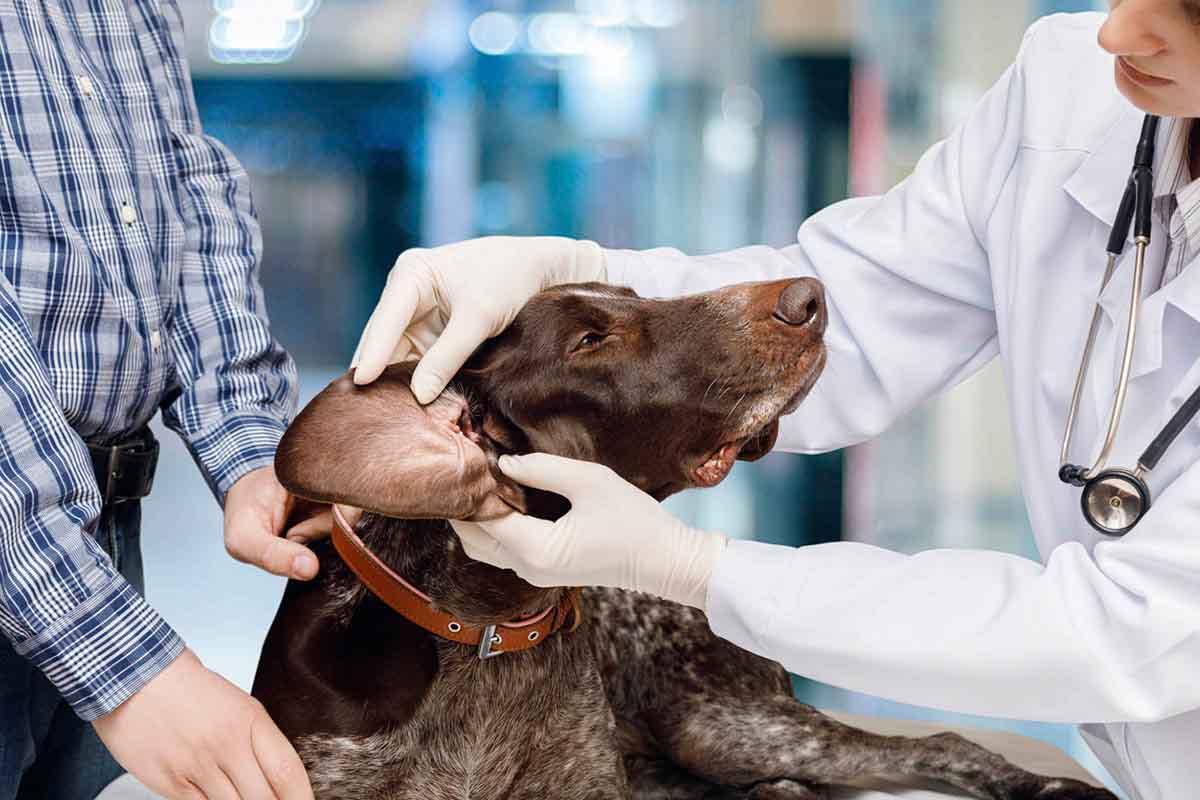Preventative Care for Dogs
Preventative care is the cornerstone of keeping your dog happy and healthy throughout their life. Here's all things preventative care for dogs, from essential checkups to parasite control.
Let’s face it, our furry friends become cherished members of the family. Just like any other family member, they deserve the best possible health care. Preventative care is the cornerstone of keeping your dog happy and healthy throughout their life. This blog post will serve as your guide to all things preventative care for dogs, from essential checkups to parasite control.
Why Is Preventative Care for Dogs Important?
Think of preventative care as an investment in your dog’s well-being. According to Dr. Laura Searle-Barnes, DVM MRCVS, preventative care “…makes it less likely that your pet gets sick. It’s gonna make it more likely that your pet lives a longer, happier, better quality of life.”
Regular veterinary visits allow for early detection of potential health issues, often before they become serious. This can mean the difference between a simple treatment and a more complicated (and expensive) medical intervention down the road.
The Essentials of Preventative Medical Care:

- Wellness Exams & Checkups: Schedule regular checkups with your veterinarian. Based on life stage, this is typically once a year for young dogs and twice a year for senior pups. These visits include a physical exam, blood work [blood testing] if recommended by your veterinarian, and an opportunity to discuss any concerns you may have.
- Vaccinations: Vaccinations protect your dog from potentially life-threatening diseases like rabies, distemper, parvovirus [parvo], and canine hepatitis. The AAHA (American Animal Hospital Association) and AVMA (American Veterinary Medical Association) publish preventative healthcare guidelines that outline core vaccines for all dogs, as well as non-core vaccines that may be recommended depending on your dog’s lifestyle and risk factors. One example is a vaccine for Lyme disease.
- Parasite Prevention: Intestinal parasites and external parasites like fleas and ticks can cause a variety of health problems for your dog. Discuss parasite prevention options with your veterinarian. There are a variety of parasite control products available, including chewable medications, spot-on treatments, and collars.
- Heartworm Prevention: Heartworm disease is a serious and potentially fatal condition transmitted by mosquitos. Year-round heartworm prevention is essential for all dogs in areas where heartworm is present.
- Dental Care: Just like humans, dogs need regular dental care to maintain good oral health. Daily teeth brushing at home is ideal, and professional dental cleanings are recommended by your veterinarian.
- Spaying or Neutering: Spaying and neutering offer numerous health benefits for your dog, including reducing the risk of certain cancers and reproductive issues. Discuss the pros and cons of spaying or neutering with your veterinarian.
Beyond the Basics

Preventative care goes beyond just checkups and medications. Here are some additional pet health tips for pet owners to consider:
- Diet & Nutrition: A healthy diet is essential for your dog’s overall health. Work with your veterinarian to develop a wellness plan that meets your dog’s individual needs.
- Weight Management: Obesity is a major health concern for dogs. Regular exercise and a healthy diet can help your dog maintain a healthy weight.
- Microchipping: A microchip increases the chances of your dog being returned to you if they become lost.
- Behavioral Training: Addressing behavioral issues early on can help prevent them from becoming bigger problems down the road.
- Pet Insurance: Consider pet insurance to help offset the costs of unexpected veterinary care.
Don’t overlook nutrition as a factor in your dog’s preventative care. As Dr. Searle-Barnes put it: “It’s my belief, I think, is the difference between feeding a baby McDonald’s all its life and feeding a baby a good nutritional diet for the rest of its life. You’re gonna get better results.”
FAQs About Preventative Dog Care
- How often should I take my dog to the vet? This depends on your dog’s age and overall health. Generally, vets recommend annual checkups for young dogs and twice-yearly checkups for senior dogs.
- What are the symptoms of heartworm disease? Symptoms of heartworm disease can vary, but may include coughing, fatigue, weight loss, and difficulty breathing. Regular heartworm testing is essential for early detection.
- What are some common types of intestinal parasites? Roundworms, hookworms, whipworms, and tapeworms are all common types of intestinal parasites in dogs.
- How can I prevent fleas and ticks on my dog? There are a variety of parasite control products available, including chewable tick control medications, spot-on treatments, and collars. Talk to your veterinarian about the best option for your dog.
Read 5 Important Questions to Ask a Vet for more insight.
Don’t Skimp on Preventative Care
By following these tips and working closely with your veterinarian, you can help your dog live a long and healthy life. Remember, an ounce of prevention is worth a pound of cure! Schedule a wellness exam with your veterinarian today to discuss a preventative care plan.
This content is for informational use only and does not replace professional nutrition and/or medical advice, diagnosis, or treatment. It is not a substitute for and should not be relied upon for specific nutrition and/or medical recommendations. Please talk with your veterinarian about any questions or concerns.








